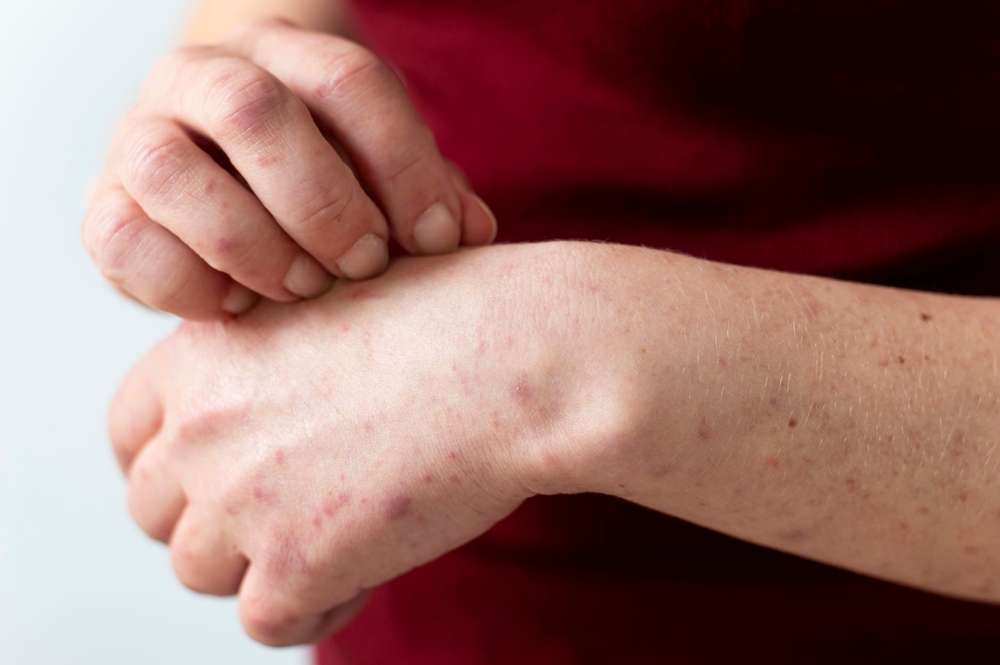Understanding Skin Rashes: Causes, Types, and Treatment Options
Skin rashes are a common medical condition that can affect people of all ages. These irritating and sometimes painful skin abnormalities can be caused by various factors, ranging from allergic reactions to genetic conditions. This article will explore the different types of skin rashes, their causes, and potential treatment options to help you better understand this widespread dermatological issue.

What are the most common causes of skin rashes?
Skin rashes can be triggered by a wide range of factors. Some of the most frequent causes include:
-
Allergic reactions: Contact with allergens like certain foods, medications, or plants can lead to skin rashes.
-
Infections: Bacterial, viral, or fungal infections can cause various types of rashes.
-
Environmental factors: Exposure to heat, cold, or harsh chemicals can irritate the skin and cause rashes.
-
Autoimmune disorders: Conditions like lupus or psoriasis can manifest as skin rashes.
-
Genetic conditions: Some inherited disorders can cause chronic or recurring skin rashes.
Understanding the underlying cause of a rash is crucial for determining the appropriate treatment and preventing future occurrences.
How are skin rashes diagnosed and treated?
Diagnosing a skin rash often involves a thorough examination by a healthcare professional. In some cases, additional tests such as blood work or skin biopsies may be necessary to determine the exact cause. Treatment options vary depending on the type and severity of the rash but may include:
-
Topical medications: Creams, ointments, or lotions containing corticosteroids, antihistamines, or antibiotics.
-
Oral medications: Antihistamines, antibiotics, or antifungal drugs for systemic treatment.
-
Lifestyle changes: Avoiding triggers, using gentle skincare products, and maintaining good hygiene.
-
Home remedies: Cool compresses, oatmeal baths, or calamine lotion for symptom relief.
It’s important to consult a healthcare provider before starting any treatment, especially for persistent or severe rashes.
Can skin rashes be a sign of a more serious medical condition?
While many skin rashes are benign and easily treatable, some can indicate more serious underlying medical conditions. Certain rashes may be associated with:
-
Autoimmune diseases: Conditions like lupus, rheumatoid arthritis, or dermatomyositis can cause distinctive skin rashes.
-
Systemic infections: Some viral or bacterial infections can manifest with skin rashes as a symptom.
-
Allergic reactions: In severe cases, rashes can be a sign of anaphylaxis, a life-threatening allergic reaction.
-
Skin cancer: Certain types of skin cancer may initially appear as unusual rashes or skin changes.
If you experience a persistent, widespread, or rapidly changing rash, it’s crucial to seek medical attention promptly to rule out any serious underlying conditions.
Are there ways to prevent skin rashes?
While not all skin rashes can be prevented, there are several steps you can take to reduce your risk:
-
Identify and avoid triggers: Keep track of substances or situations that may cause skin reactions.
-
Practice good skincare: Use gentle, fragrance-free products and moisturize regularly.
-
Protect your skin: Wear protective clothing and use sunscreen when exposed to the elements.
-
Maintain a healthy lifestyle: A balanced diet, regular exercise, and stress management can support overall skin health.
-
Manage existing skin conditions: Follow your healthcare provider’s recommendations for treating chronic skin issues.
By taking these preventive measures, you can minimize the occurrence of many common skin rashes and maintain healthier skin overall.
Skin rashes are a diverse group of dermatological conditions that can range from minor irritations to indicators of serious health issues. By understanding the various causes, types, and treatment options for skin rashes, you can better care for your skin and know when to seek professional medical advice. Remember that while many rashes are harmless, persistent or unusual skin changes should always be evaluated by a healthcare provider to ensure proper diagnosis and treatment.
This article is for informational purposes only and should not be considered medical advice. Please consult a qualified healthcare professional for personalized guidance and treatment.






